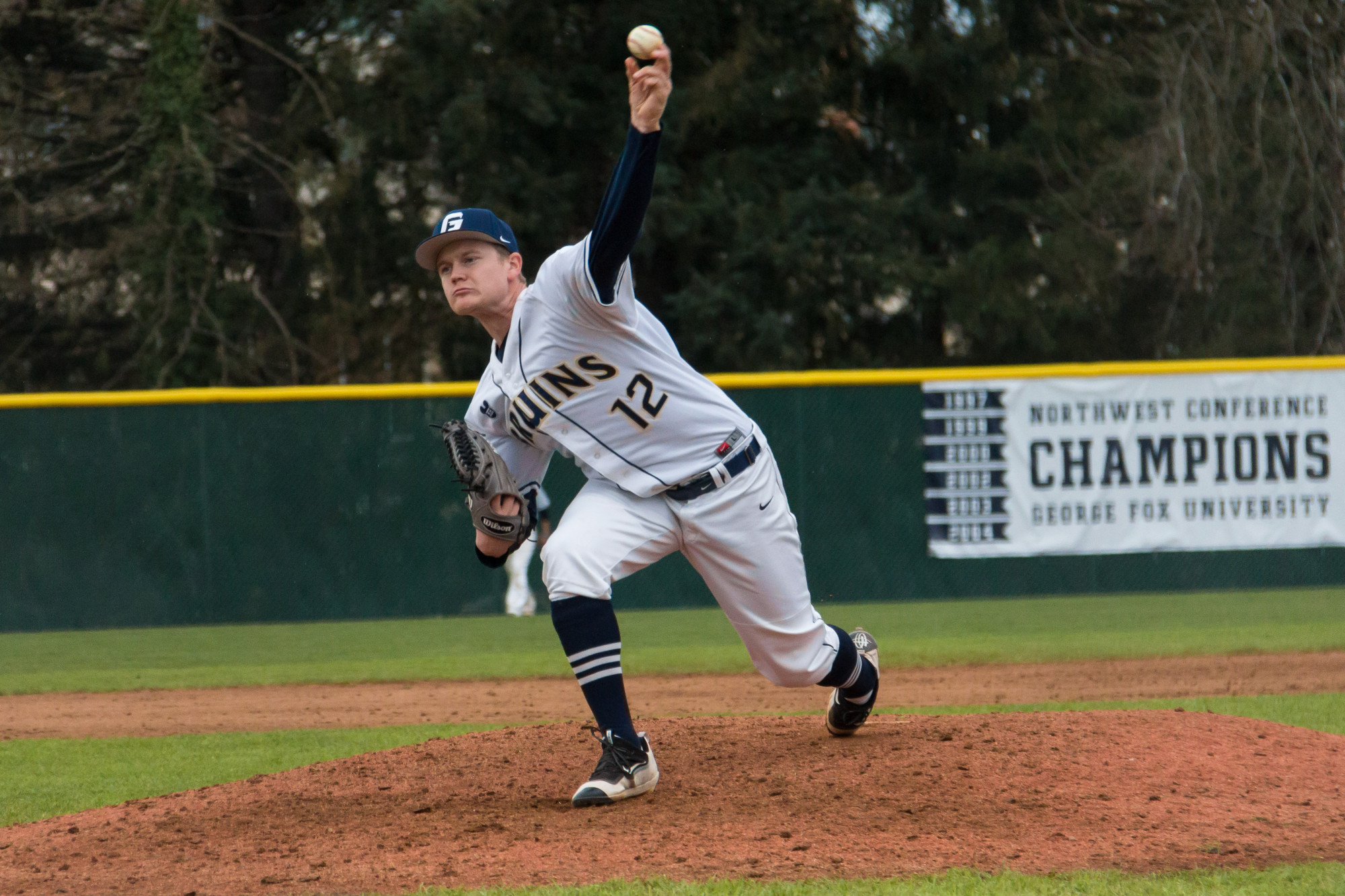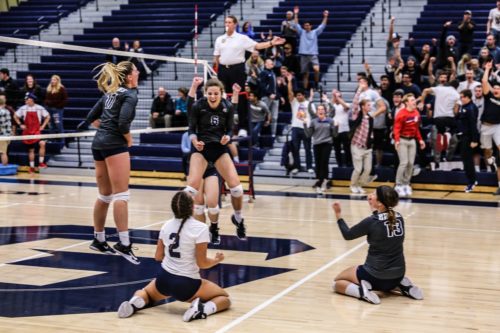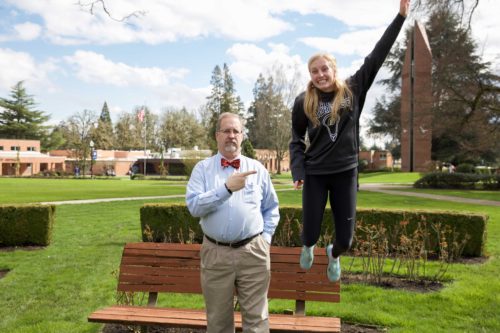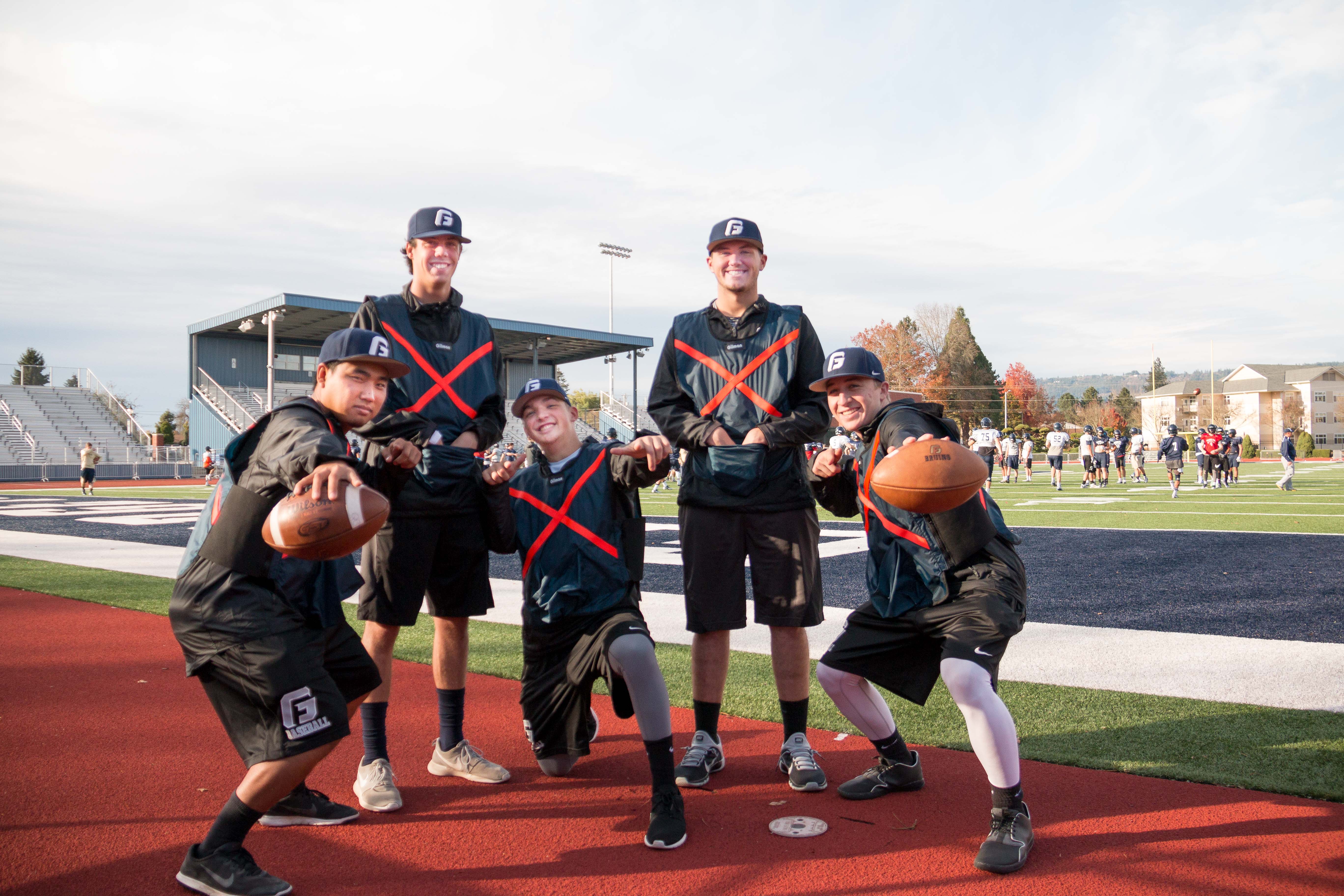Sam Morland keeps it simple: Study and play ball
Facing Sam Morland has been a daunting task for opposing batters this season. Morland, a senior, holds a 7-2 record over 51.1 innings of work, and his ERA, a slim 1.75, is the team-best.
But Morland has his own daunting challenge: namely, trying to squeeze the hard work that underlies his success into a twenty-four hour day that never really feels quite like twenty-four entire hours. After all, Morland doesn’t hold a 1.75 ERA by chance. His achievements this year are built upon routine, and work, and early mornings after late nights. And on the mound isn’t the only place Morland’s achieving things.
“It is difficult,” said Morland, “to balance academics and baseball, especially with an engineering course schedule.” Engineers at George Fox have such a demanding schedule that their general-education requirements are reduced. Being an engineer at all means constructing a loaded, often overloaded, schedule.
The same, of course, goes for student-athletes, and baseball players especially clock in for long hours. During the offseason, said Morland, “the team has workouts four days per week. We work out early in the morning so the weekdays are free for schoolwork, but it does involve waking up early, so I get tired in the evenings.”
Imagine: up before dawn to lift, run, throw. Leaving the gym at seven or eight, sweating, exhausted. And then it’s off to the classroom, to the lab, for engineering work on concepts like thermodynamics, a word that’s exhausting just to say.
That’s just in the offseason. What’s Morland’s schedule like during the season, with practices and games and doubleheaders—some as far away as Seattle, Walla Walla, or, during long trips, even Texas?
“This year we took two long distance road trips, one to Arizona and one to Texas,” said Morland. “That means waking up very early on Thursday morning to catch a flight out of Portland. On these road trips we played four games over one weekend: one Friday, two Saturday, and one Sunday). Then after our Sunday game we fly home.”
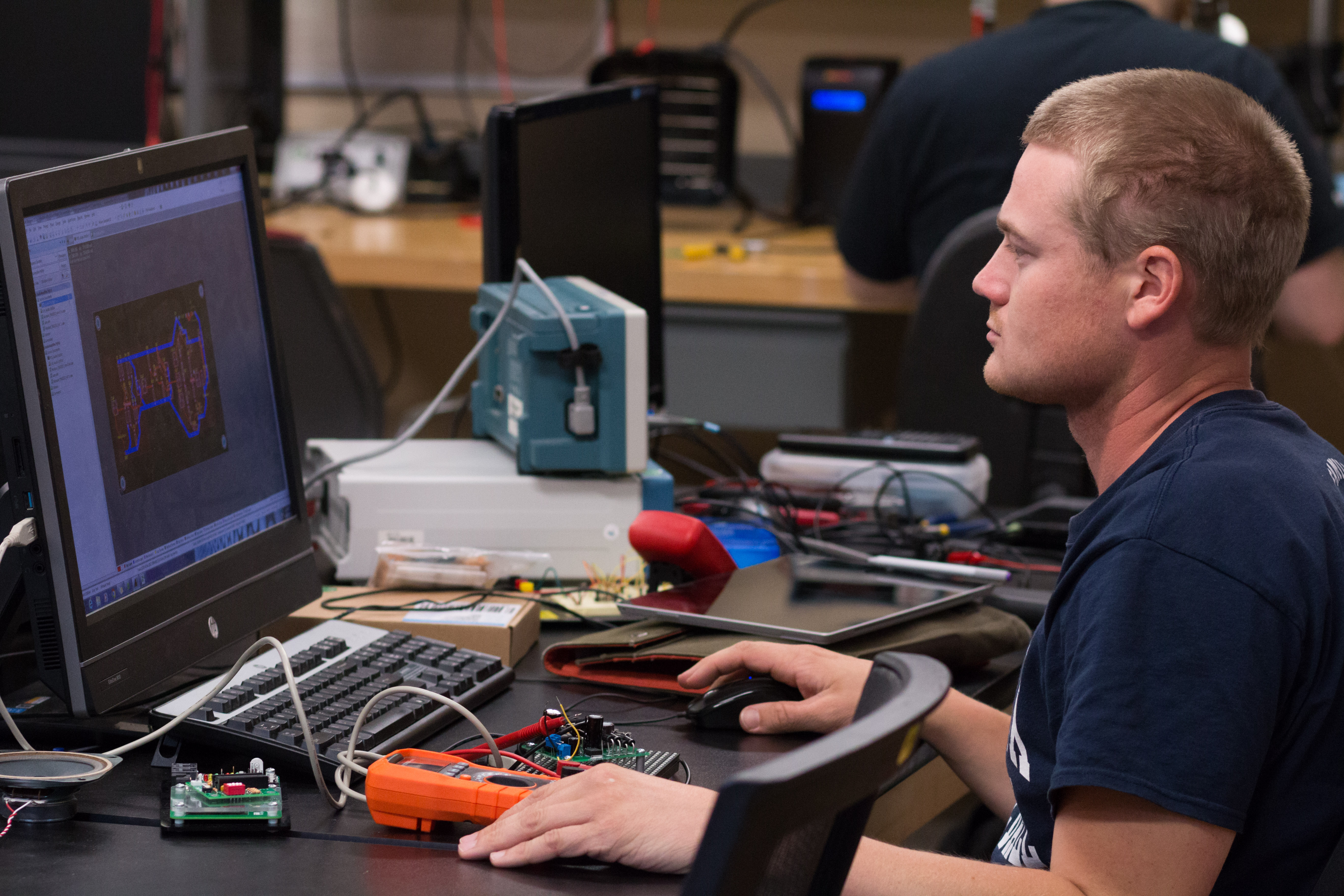
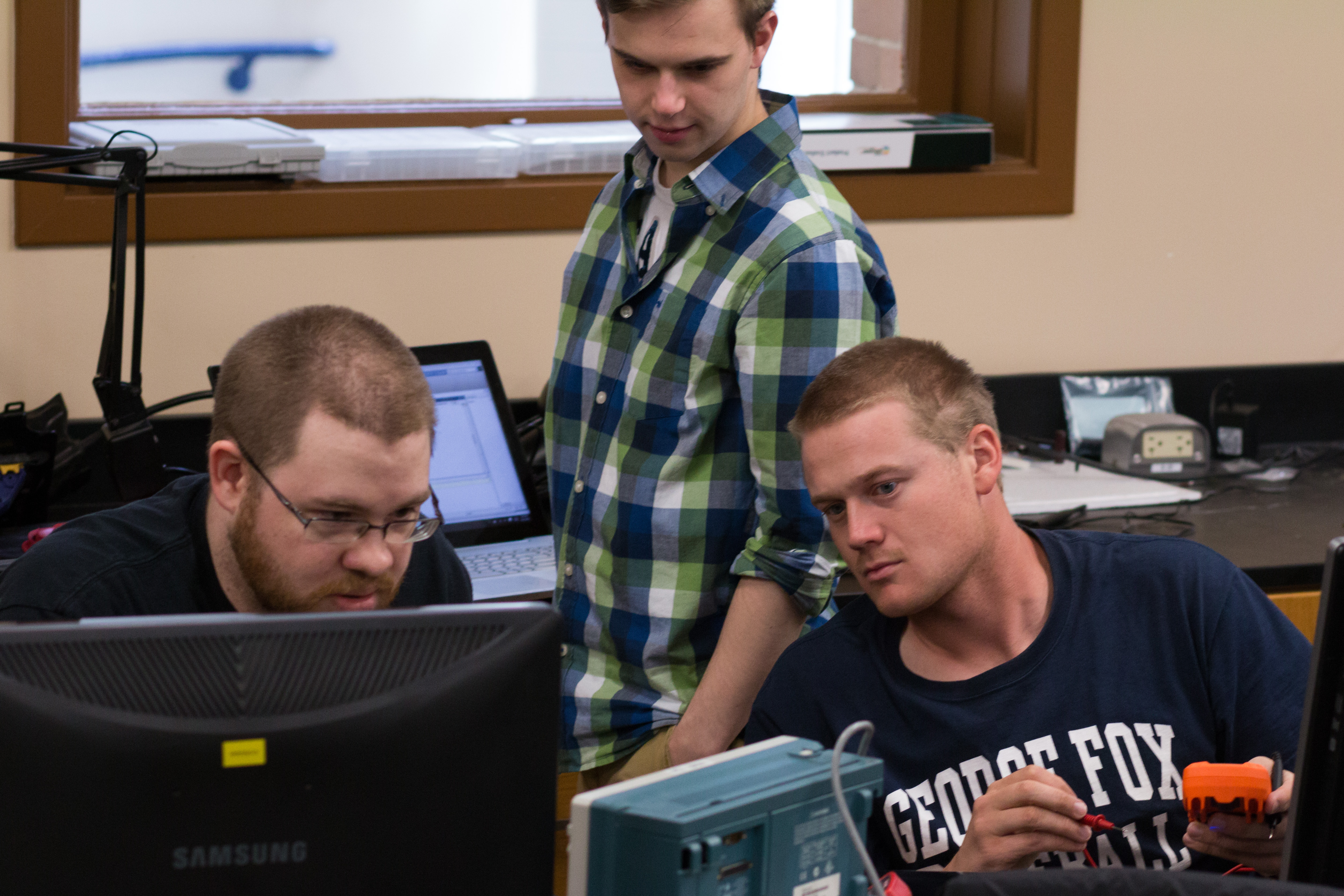
Morland has to be very intentional about how he uses his time. Even over spring break, with so many games he has to schedule in as much time as necessary for homework.
“On both of these trips I made sure to take school work with me to study during down time. I also took advantage of studying while riding on the airplane, but it is not as easy to do as it seems.”
Still, Morland looks forward to these longer trips—for the baseball, and the food.
“These road trips are always a lot of fun. We get to play baseball, be in the sun when its raining here, and eat the food from different parts of the country, like In-‘N-Out.”
These long trips are the exception to Morland’s usual schedule. When he’s not on spring break, class every day means plenty of engineering work, and he usually doesn’t have much space on weekends.
“When we play conference games on weekends,” explained Morland, “the schedule is a Saturday doubleheader and one game on Sunday. The first game starts at noon on Saturday, which means getting to the field or getting on a bus around nine to warm up and have batting practice. Games typically take two and a half hours, so Saturdays turn into long days. Sunday is the same schedule but with only one game.”
Without room on the weekends for study-binges, how does Morland cram it all in? By necessity, he’s hyper-organized with his materials and his time. For Morland, order and discipline make it all possible.
“I keep things straight by looking for the next task I can complete all day. I also have separate binders for classes, and I have learned to do little things, such as put a date on all the notes I take in class.” What’s more, Morland doesn’t just know what he’s going to do on one day: he’s got everything planned out for weeks. “When it is time to prepare for a test,” said Morland, “I know exactly what we have covered that will show up on the test. Each year I get a little better at managing this type of schedule and the key to it is remembering to take care of yourself and focus on one thing at a time when there are multiple things to do. Keeping a steady pace is key to avoid burning out.”


